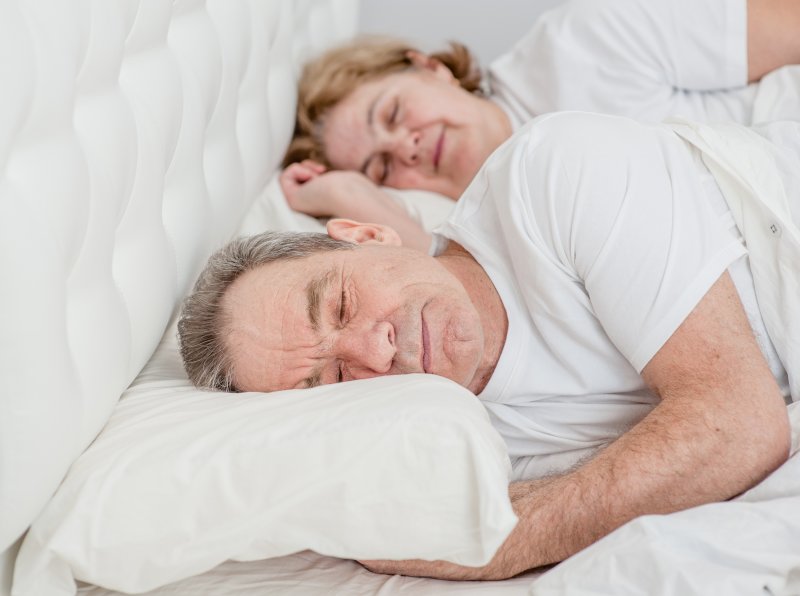
Many of us associate sound machines with baby showers and toddlers at bedtime, but recent research suggests that these sounds may also benefit older adults.
Sleep quality tends to decline with age, but scientists have found that “pink noise” can help calm brain activity during sleep for older adults.
Pink noise can include sounds such as a flowing river, soft rain, ocean waves, or rustling leaves. Similar to white noise, it covers all frequencies that humans can hear, though it emphasizes lower frequencies. Could it be the key to helping you sleep as well as you did decades ago?
The Science of Pink Noise
In a recent study conducted in Zurich, Switzerland, researchers played pink noise for 16 adults in the age range of 62-78 while they slept at home.
The results suggested that playing pink noise helped participants increase the slow waves in their brains during sleep cycles.
Slow-wave brain activity is important, as it is associated with helping form memories. When aging adults have decreased sleep quality, slow waves also tend to decrease. All of this is to say that pink noise increasing slow waves could lead to improved brain function.
Sleep Issues in Older Adults
Additional research has found that adults over the age of 60 can lose up to 70% of their deep sleep compared to those 25 and younger. Older adults also tend to wake up more frequently and have increased trouble falling and staying asleep.
These increased sleep issues are often a result of less exercise, poor diet, and a shift in the circadian rhythm as adults age. They also have higher rates of conditions that can make sleeping more difficult, such as lingering injuries, chronic pain, and bladder problems to name a few.
What This Means for Sleep Apnea Sufferers
Obstructive sleep apnea (OSA) is a sleep condition that can cause interrupted breathing while asleep, snoring, daytime sleepiness, and other symptoms. In most cases, OSA can be tied to low-quality sleep. In combination with decreased slow brain waves due to aging, this can have detrimental effects on someone’s health, specifically regarding cognitive impairment.
Fortunately, research has shown that addressing sleep conditions can drastically help individuals maintain cognitive function later in life.
When It’s Time to Schedule a Consult
If you or someone you know is experiencing symptoms such as daytime sleepiness, snoring, interrupted breathing while asleep, and/or irritability, it may be time to seek help from a professional. Pink noise alone can only do so much!
If you live in the Atlanta area, Dr. Jeff Rodgers can help treat sleep apnea. Using a small oral device that’s worn to bed, he can make it easier to breathe and enable someone to get the quality sleep they deserve.
Request an appointment at Sleep Better Georgia today to learn more about oral appliance therapy.
